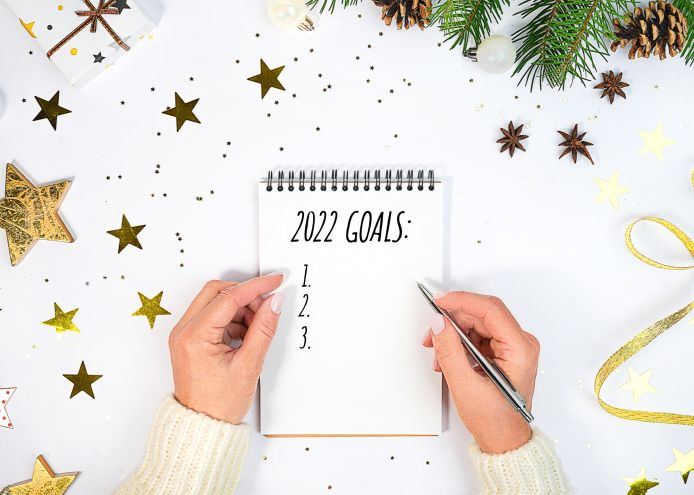How did New Year’s resolutions start?
The first New Year’s resolutions date back over 4,000 years ago to ancient Babylon. The Babylonians are said to have started the tradition during Akitu, a 12-day New Year celebration.
During the Akitu festival, the ancient Babylonians would plant crops, crown a new king (or pledge their loyalty to the reigning king), and make promises to the gods to pay their debts and return any borrowed items. They believed that if they kept their word, the gods would look favourably on them for the year ahead. If the Babylonians broke their promises, they would fall on the bad side of their gods.
The history of New Year’s resolutions continued in ancient Rome. Emperor Julius Caesar introduced a new calendar in 46 B.C. which declared January 1st as the start of the new year. This new date honoured Janus, a two-faced god who symbolically looked back into the previous year and forwards into the new year. The Romans would offer sacrifices to Janus and make promises of good behaviour for the year ahead.
New Year’s resolutions were also made in the Middle Ages. Knights would renew their vow to chivalry by placing their hands on a live or roasted peacock. The annual “Peacock Vow” would take place at the end of the year, as a resolution to maintain their knighthood values.
Why do people make New Year’s resolutions?
Modern New Year’s resolutions are a largely secular practice, with most people making resolutions to themselves rather than promising gods. The focus of the tradition is on self-improvement, with people taking time to reflect on their goals.
Today’s resolutions are often health focused, driven by the indulgence of the Christmas period. The symbology of the New Year also makes it a great time to wipe the slate clean and start fresh after December 31st.
At least 40% of people in the United States set New Year’s resolutions, while 22% of people in the UK aim for self-improvement with a resolution.
Yet, research shows that 80% of people break their resolutions by the first week of February and only 8% are successful in achieving their goals at all.
Despite having over 4,000 years of practice, these figures aren’t likely to improve any time soon. Experts say we’re doomed to fail when making New Year’s resolutions thanks to unrealistic expectations.
We set lofty goals that quickly become overwhelming, and we fail to make a plan to achieve these goals. The key to completing your resolution is to break it down into small, tangible steps. Instead of saying, “I want to get fit”, set a specific goal like going to a gym class every Monday and Wednesday.
Are you looking for inspiration for your New Year’s resolutions in 2020? Here are some of the most common resolutions made on January 1st each year.
- Eat healthier
- Exercise more
- Lose weight
- Save more money and pay off debt
- Learn a new skill or hobby
- Travel more
- Watch less TV
- Read more
- Find a new job
- Volunteer with a charity
- Start your own business
- Quit smoking
- Drink less alcohol
- Spend more time with family and friends
You could decide that your New Years’ resolution is to move home – if so, then January is a great month to start planning for a move. If you would like a free market appraisal call 01134 676 400
W:davidphillip.co.uk e: info@davidphillip.co.uk a: 86, Leeds Road, Bramhope, Leeds





